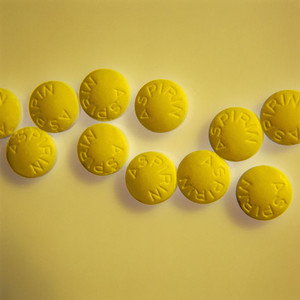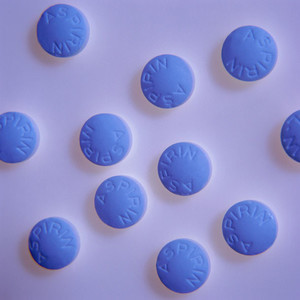In a speech on 23 June 2009 before the Center for American Progress in Washington, DC, USA, Federal Trade Commission (FTC) Chairman Jon Leibowitz said that an internal FTC analysis projects that stopping collusive ‘pay-for-delay’ settlements between brand and generic pharmaceutical firms would save consumers US$3.5 billion (Euros 2.5 billion) a year and also reap significant savings for the federal government, which pays approximately one-third of all prescription drug costs. Mr Leibowitz urged Congress to pass pending legislation to ban or restrict such anticompetitive patent settlements, in which manufacturers of brand-name drugs pay potential generic competitors to stay out of the market, as a way to control prescription drug costs, restore the benefits of generic competition, and help pay for healthcare reform.
“From my perspective, … the decision about whether to restrict pay-for-delay settlements should be simple,” Mr Leibowitz said. “On the one hand, you have savings to American consumers of US$35 billion (Euros 25 billion) or more over ten years – about US$12 billion (Euros 8.5 billion) of which would be savings to the federal government – and the prospect of helping to pay for healthcare reform as well as the ability to set a clear national standard to stop anticompetitive conduct. On the other hand, you have a permissive legal regime that allows competitors to make collusive deals on the backs of consumers.”
Mr Leibowitz stated that “eliminating these [pay-for-delay] deals is one of the FTC’s highest priorities.” In these agreements, a brand-name company settles its patent law suit by paying the generic firm to delay entering the market. Such deals can cost consumers billions of dollars because generic drugs are typically priced significantly less than their branded counterparts.
More than two decades ago, US Congress passed the Hatch-Waxman Act, which was designed to make it easier for generic drugs to enter the market, while giving brand-name manufacturers the patent protection they need to encourage lifesaving research, the Chairman explained. While the legislation initially worked as intended, resulting in significantly lower prices for consumers through generic drugs, drug companies eventually found they could delay generic entry by settling patent litigation using pay-for-delay tactics.
Leibowitz remarked that while the FTC successfully stopped such illegal payments earlier this decade, recent appellate court decisions, beginning in 2005, have blessed these anticompetitive settlements. These decisions have ‘opened a Pandora’s box of settlements’ with generic firms competing to be the first to get paid off to stay out of the market instead of competing to be the first to come to market.
A new agency analysis of available economic data provides useful information about the potential savings from banning pay-for-delay settlements. The analysis projects that eliminating such settlements could save consumers US$3.5 billion (Euros 2.5 billion) each year, totalling US$35 billion (Euros 25 billion) over a decade. The FTC data analysis, he said, provides further evidence of “the cost of failing to eliminate pay-for-delay patent settlements”.
In addition, because the federal government currently pays about one-third of the nation’s US$235 billion (Euros 168 billion) prescription drug bill, prohibiting such anticompetitive settlements could save the government roughly US$1.2 billion (Euros 858.6 million) a year, or US$12 billion (Euros 8.5 billion) over 10 years.
Mr Leibowitz pointed out that recently there have been some encouraging signs for consumers in the Administration, in the courts, and in Congress. Firstly, the new Administration “has created momentum for a national solution to stop [pay-for-delay] settlements”, with both the President and Assistant Attorney General for Antitrust Christine Varney stating their opposition to such deals. Secondly, the Court of Appeals for the Second Circuit has questioned its own precedent, set in the ‘Tamoxifen’ case, by asking the Department of Justice to weigh in on a pending case raising similar competitive issues. Thirdly, “support is building in Congress for a solution,” the Chairman said, with a House subcommittee this month voting in favour of a bill that would prohibit these settlements, HR 1706, the Protecting Consumer Access to Generic Drugs Act of 2009.
Teva ‘astonished’
Teva Pharmaceutical Industries has reacted angrily to claims made by the FTC that pay-for-delay agreements between brand-name and generic manufacturers could cut spending on pharmaceuticals in the US by billions of dollars a year. The Israeli drugmaker’s US subsidiary was responding to comments from the FTC’s Chairman Jon Leibowitz who said that an internal analysis projects that stopping ‘collusive’ settlements between brand and generic pharmaceutical firms would save consumers US$3.5 billion (Euros 2.5 billion) a year. However Teva said it was ‘astonished’ by the FTC’s assertion that consumers would benefit from proposed legislation that would make it harder for generic and branded companies “to settle complex patent cases”.
The company adds that the settlements the Commission opposes “have produced billions of dollars in taxpayer and consumer savings – savings that are nowhere reflected in the FTC’s analysis”. The latter’s “purported savings are based on the flawed assumption that branded companies will voluntarily forego additional years of profits if that is the only way they can settle a case”, Teva said.
The drugmaker went on to state that “the reality is that there will be fewer settlements resulting in the loss of guaranteed savings” from deals that would otherwise occur in the absence of the legislation. It added that “each of the settlements Teva has entered into have been pro-consumer, and [the firm is] proud of the resulting US$128 billion (Euros 91.5 billion) plus in savings to be delivered to the public by removing 138 years of monopoly protection”. Teva concluded by saying that it supports legislation that “differentiates between pro-consumer and anti-competitive settlements, instead of trying to restrict the parties ability to negotiate altogether”.








 0
0










Post your comment